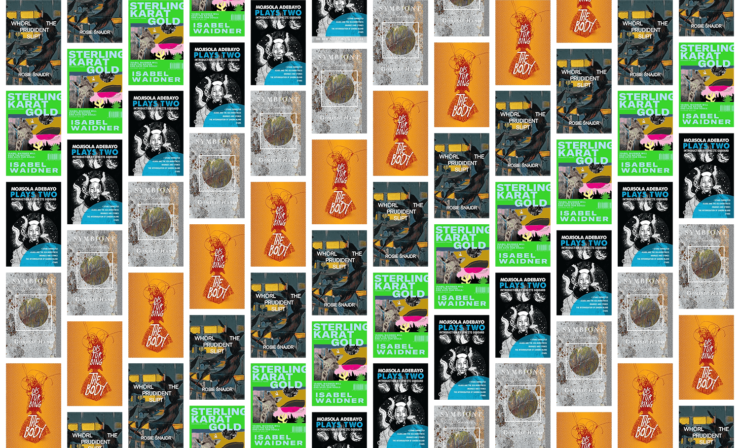There’s a definite crossover between SFF themes and experimental literary practice in the UK of late, particularly in London. As the dominance of white, upper-middle class, male writers writing realist fiction about their lives continues to falter, new perspectives, new voices and new ways of thinking about the worlds we live in are emerging. Small presses are picking up on these exciting explorations of the boundaries of experience and literature, so I’m going to use this opportunity to direct the reader’s attention to the work of five writers who engage with science fiction and fantasy tropes, push the boundaries of literary genre and form, and are challenging the cultural status quo.
“We Are Cosmonauts” by Rosie Šnajdr
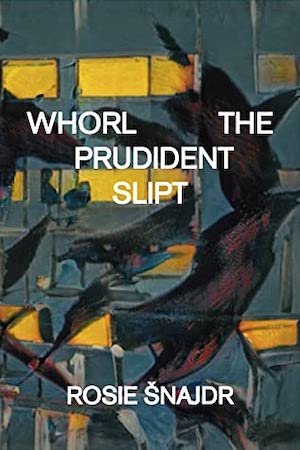
“We Are Cosmonauts” tracks the thoughts of Yuri Gagarin, the first man in space, as he rockets out of the atmosphere. Šnajdr maps these thoughts against his iconic press images, drawing in themes of transcendence and the body, in a piece of concrete prose that defies easy summary. It’s entirely unique and brilliant and included in her new book, Whorl The Prudident Slipt, if you want to see it on paper. Her A Hypocritical Reader is also excellent (especially the Choose Your Own Adventure stuff). All highly recommended for those interested in the cutting edge of what prose can do in the twenty-first century, and how that intersects with genre writing.
Stars by Mojisola Adebayo
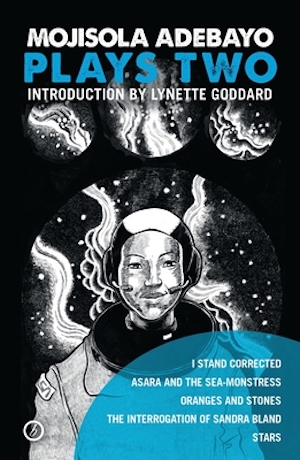
Mojisola Adebayo, a veteran of the Theatre of the Oppressed—a method that centres audience participation and progressive political change—has produced decades of important work, and Stars is no exception. As Adebayo says, quoted in publisher Dostoyevsky Wannabe’s collection Liberating the Canon: An Anthology of Innovative Literature, edited by Isabel Waidner (who you’ll also see below for their own book): “Stars is a play with animation and music that tells the story of an old lady who travels into outer space… in search of her own orgasm. The play poetically explores the power and politics of pleasure for women, girls, and intersex people. It questions why millions of people are prevented from being to able to reach the heights of sexual pleasure as a result of sexual trauma and genital mutilation practices, traditions, and surgical interventions that continue to this day on every continent and connects all these themes with space travel.”
Sterling Karat Gold by Isabel Waidner
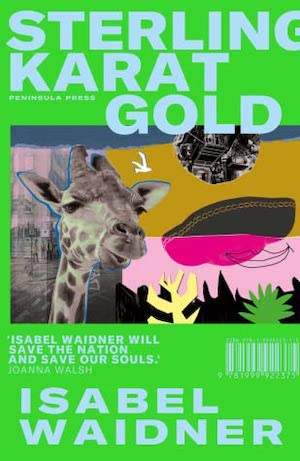
This has just been released and Waidner’s We Are Made Of Diamond Stuff is getting a reissue, too. Their work is a dizzying mix of genre-defying word play, queer/trans experience, literary experiment and – often overlooked – fun: there’s spaceships and time-travel alongside anticapitalism and resistance. This book follows Sterling and friends as they try to avoid the repressive mechanisms of an irrational state in a giddy mash-up of Kafka’s “The Trial”, gender-nonconformity, British class history, living fountains, and…well, almost anything else you can think of. Waidner is a revolutionary, eclectic genius, and everyone should read this book.
“Alysm” by Irenosen Okojie
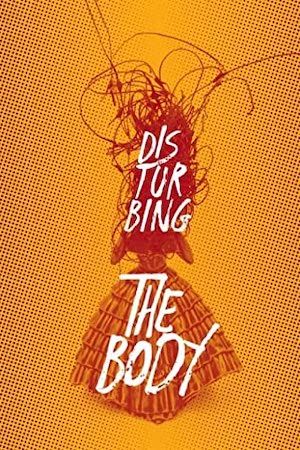
Okojie, who you’ll see provides a cover quote for Isabel Waidner’s book above, has recently been given an MBE by the Queen for her services to literature. Regardless of what you think about being a “Member of the Order of the British Empire” (like all empires, one with a pretty chequered history, to put it politely), it’s a well-deserved recognition of both the excellence of her writing and her tireless work behind the scenes on the margins of literary culture. I was first introduced to her short stories at an astounding reading at the Greenwich Book Festival; it completely put me off my stride, which was a shame because I was on after her. She writes dazzling and dark fantastical surrealist tales – Speak Gigantular and Butterfly Fish were published by Jacaranda Books before Little, Brown picked up her latest, Nudibranch. You can get an idea of her work with “Alysm,” a short story run in The London Magazine earlier this year. It’s a nightmarish exploration of a Black woman’s hospitalisation with a fictional but all too familiar virus. I can’t wait to see what she comes up with next.
Symbiont by Dominic Hand
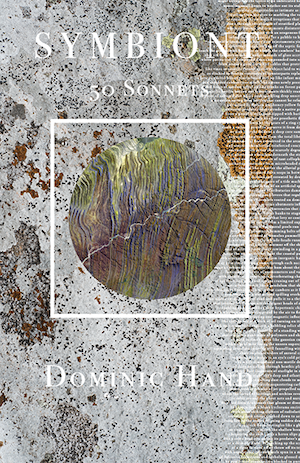
J.H. Prynne, the revered Cambridge School poet, describes Hand’s poetry as “a dense jungle of hyper-variegated vocabulary, syntax exempt from phrasal interference”, and I wouldn’t dare to disagree, but what strikes me about this collection is more its use of the aesthetics of science and science writing. If you ever wondered what “science poetry” might look like, as opposed to “science fiction”, I think this would be close.
To Plankton, for example, starts like this:
tumbling like motes in an eye’s cold prism
the multi-dimensional non-motile drifts
of diatoms jinking through benthic plasm
constellate fragments of starlight in rifts
as subdued as the night sky’s deep and atlantean
gravities corralling dust clouds to maps
of compassless pyrenoids sequestering carbon
in scattershot nebulas of jet-propelled salps
Admittedly, I’m not sure Hand works in London, but his collection is published by Veer 2, which is an imprint of Veer Books, which operates out of Birkbeck, University of London and the University of Surrey.
Alex Pheby’s second novel, Playthings, was shortlisted for the Wellcome Book Prize; his third, Lucia, about the tragic life of James Joyce’s daughter, was the joint winner of 2018’s Republic of Consciousness Prize. Mordew is his fourth novel. Born in Essex, he grew up in Worcester, and now teaches at the University of Greenwich in London.










